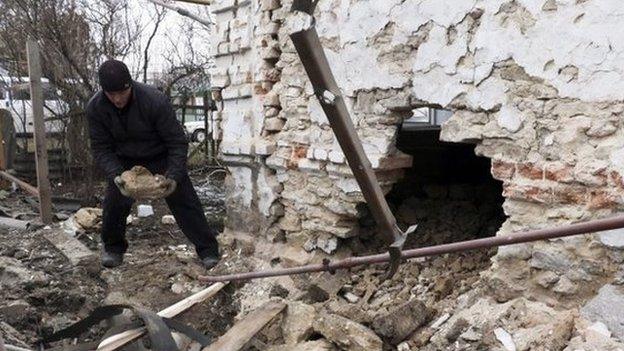US to store heavy weapons in Poland under Nato plan
- Published

US tanks have been on exercises at the Adazi military base in Latvia
The US will take a decision soon to store heavy weapons including tanks and infantry fighting vehicles in Poland, the Polish defence minister says.
Tomasz Siemoniak said he had discussed such US military deployments last month with US Defence Secretary Ash Carter.
The US military has been conducting massive drills with Nato allies in Eastern Europe amid regional alarm over Russia's role in the Ukraine conflict.
Russian officials said the plan could have "dangerous consequences".
The three Baltic states also plan to store US heavy weapons, officials say.
The US has confirmed only that it is to send an armoured brigade of up to 250 vehicles, including tanks, to Germany to support its Nato allies.
US Defence Secretary Ashton Carter will decide in due course whether any of those vehicles will be deployed to other European countries.
"Decisions are near," Mr Siemoniak tweeted, external (in Polish), confirming a New York Times report, external at the weekend that storage of US heavy weapons in Poland was being discussed.
Such pre-positioning of US armour on the territory of its ex-communist Nato allies would be a first since the Cold War ended.
It would not be an ad hoc measure, the minister said, but "for years and decades".
Reports say up to 5,000 Nato troops could be equipped with the weapons set to be stored in eastern Europe. It would be in position for a Nato rapid reaction brigade, agreed at a Nato summit last year, which could deploy at short notice.
The White House and Mr Carter still have to approve the heavy weapons storage, and no precise locations have been named yet.
"This is another step towards building a greater US presence in Poland and the region," Mr Siemoniak told the Polish news agency PAP.
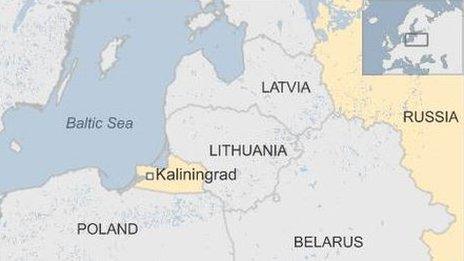
"If heavy US military equipment, including tanks, artillery batteries and other equipment really does turn up in countries in eastern Europe and the Baltics, that will be the most aggressive step by the Pentagon and Nato since the Cold War," said Gen Yuri Yakubov, a Russian defence ministry official.
Gen Yabukov said that, under such circumstances, Russia would "organise retaliatory steps to strengthen our Western frontiers".
A Russian Foreign Ministry statement said: "We hope that reason will prevail and the situation in Europe will be prevented from sliding into a new military confrontation which may have dangerous consequences."
Missile tensions
The US is also building a missile defence base at Redzikowo in Poland, part of a shield aimed at protecting Nato countries from any long-range missile threat from a "rogue" government.
Russia has condemned the missile shield plan, accusing Nato of jeopardising European security. Russia is reported to have deployed short-range Iskander missiles in Kaliningrad, near Poland and the Baltic states.
Nato and Western leaders accuse Russia of sending soldiers and heavy weapons including tanks and missiles to the pro-Russian separatists in eastern Ukraine. Russia has repeatedly denied this, insisting that any Russians fighting there are "volunteers".
Intermittent shelling and skirmishes have threatened the Minsk ceasefire agreed in February between the rebels and the Ukrainian government.
Poland and the three ex-Soviet Baltic republics - Estonia, Latvia and Lithuania - have issued some of the strongest condemnations of Russia's policy in Ukraine.
Tensions escalated in March 2014 when Russia annexed Ukraine's Crimea peninsula.
Bulgaria, Romania and Hungary have also been named as possible storage locations for US military hardware.
- Published17 April 2015
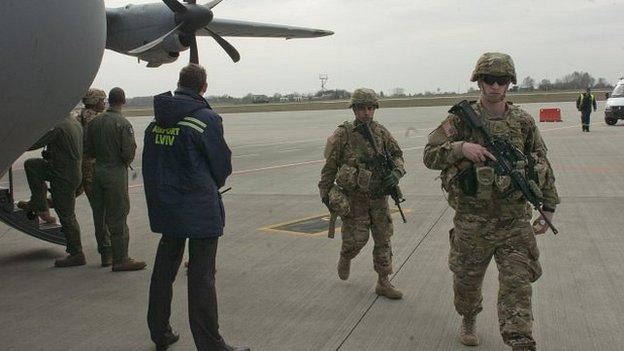
- Published6 April 2015
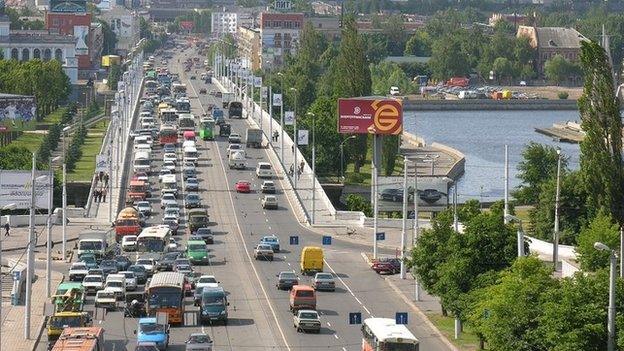
- Published5 March 2015
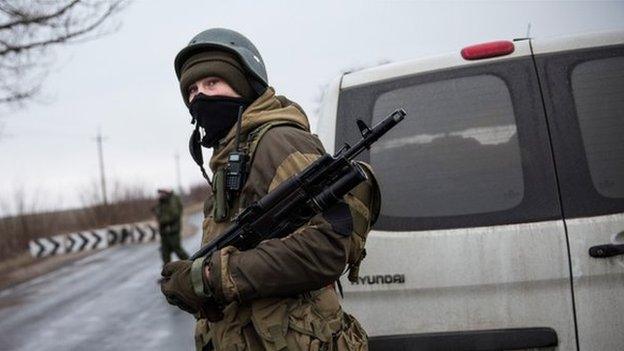
- Published5 February 2015
